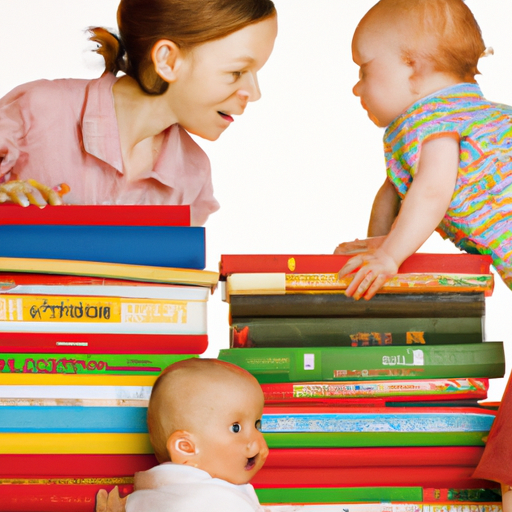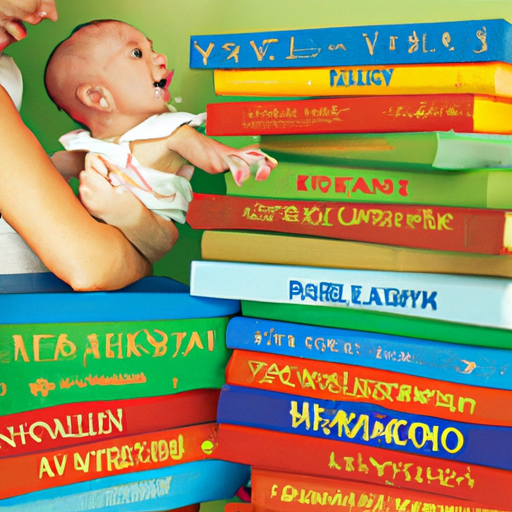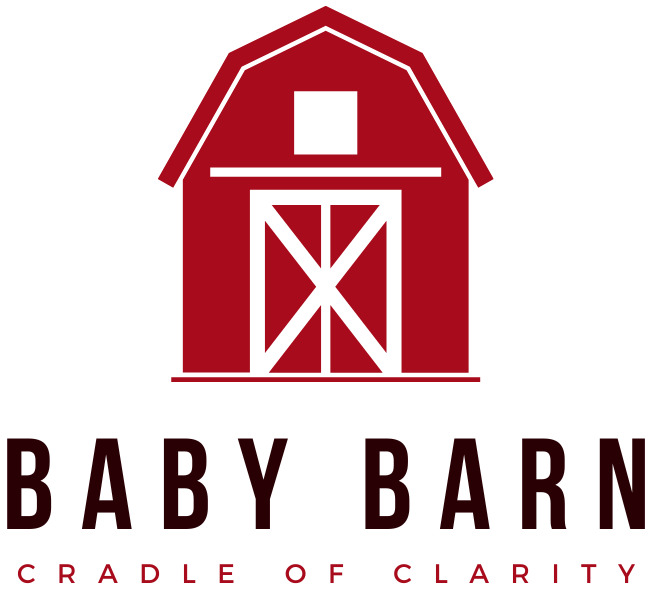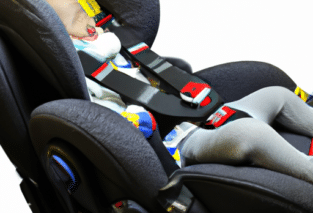In this article, you will learn about the benefits of raising a multilingual baby and get some tips to help you along the way. Being able to speak multiple languages is a valuable skill that can open up a world of opportunities for your child. We will discuss how being bilingual or multilingual can enhance cognitive abilities, improve communication skills, and even have a positive impact on their future career prospects. Additionally, we will provide you with practical advice on how to raise a multilingual baby, including exposing them to different languages and incorporating language-learning activities into their daily routine. By the end of this article, you will feel equipped and motivated to give your baby the gift of multilingualism.

Introduction
If you’re considering raising a multilingual baby, congratulations! You’re embarking on a wonderful journey that will bring numerous benefits to your child’s development. In this article, we will explore the advantages of raising a multilingual baby, as well as provide tips and strategies to help you navigate this exciting adventure.
Benefits of Raising a Multilingual Baby
Enhanced Cognitive Abilities
One of the key benefits of raising a multilingual baby is the enhancement of cognitive abilities. Research has shown that exposure to multiple languages from an early age can improve brain development, particularly in areas related to memory, problem-solving, and critical thinking skills. Multilingual children often demonstrate advanced creativity and flexibility in their thinking processes.
Improved Social Skills
Being multilingual can also improve a child’s social skills. When children are exposed to different languages and cultures, they learn to adapt and communicate effectively in diverse social settings. This fosters empathy, tolerance, and respect for others, making multilingual children more open-minded and socially adept.
Increased Cultural Understanding
Language and culture are intimately connected. By exposing your baby to different languages, you are also exposing them to diverse cultures and perspectives. This early exposure allows them to develop a deeper understanding and appreciation for different cultures, traditions, and ways of life. Multilingual children are more likely to become global citizens who value diversity and embrace multiculturalism.
Improved Problem-Solving Skills
Multilingualism has been linked to improved problem-solving skills. Bilingual or multilingual children often exhibit a higher level of cognitive flexibility, which enables them to approach challenges from different angles. Their ability to switch between languages and think in multiple linguistic frameworks allows them to find creative solutions to problems. This valuable skillset will benefit them throughout their lives.

Tips for Raising a Multilingual Baby
Now that we’ve explored the benefits of raising a multilingual baby, let’s dive into some practical tips and strategies to help you along the way.
Start Early
The earlier you expose your baby to different languages, the easier it will be for them to develop fluency. Babies are born with a remarkable ability to perceive and distinguish the sounds of all languages. By introducing languages early on, you take advantage of their natural language acquisition skills.
Create a Language-Rich Environment
To nurture multilingualism, it’s important to create a language-rich environment at home. Surround your baby with books, music, and other resources in different languages. Label objects around the house in multiple languages and engage in daily language activities, such as singing songs, playing games, and reading stories.
Be Consistent
Consistency is key when raising a multilingual baby. Create language routines and stick to them. Designate specific times for speaking each language and use it consistently during those times. Consistency helps your baby develop clear language patterns and prevents confusion. Be patient and persistent, as language learning is a gradual process.
Expose the Baby to Native Speakers
Whenever possible, expose your baby to native speakers of the languages you’re introducing. Native speakers provide authentic language models and expose your baby to proper pronunciation, intonation, and cultural nuances. Seek opportunities for your child to interact with native speakers through playgroups, community events, or language exchange programs.
Use Different Strategies for Each Language
As a parent raising a multilingual baby, you can use various strategies to reinforce each language. Speak the minority language at home, engage in conversation and play activities exclusively in that language. Outside the home, you can use the majority language, allowing your child to form a solid foundation in both languages.
Choosing Which Languages to Introduce
When deciding which languages to introduce to your baby, there are several factors to consider.
Consider Your Own Language Skills
It’s essential to assess your own language skills and fluency before introducing a language to your baby. Parents who are fluent speakers of a language can provide better language models and support their baby’s language development more effectively.
Reflect on Your Family’s Cultural Background
Consider your family’s cultural background and heritage when choosing languages. Introducing languages that are closely tied to your family’s roots can foster a sense of identity and connection to your cultural heritage. Your baby will benefit from learning about their ancestry while becoming multilingual.
Think About the Usefulness of the Language
Consider the usefulness of the language in your local community, job market, or when traveling. Opting for languages that have practical applications can provide your child with valuable opportunities in the future.

Methods to Encourage Language Learning
There are various methods you can utilize to encourage language learning in your child.
Read Books in Different Languages
Reading books in different languages exposes your baby to a wide range of vocabulary, sentence structures, and storytelling techniques. Read books aloud in each language you’re introducing and discuss the stories with your little one. This not only aids language development but also cultivates a love for reading from an early age.
Listen to Music in Different Languages
Listening to music in different languages exposes your baby to the melody and rhythm of each language. Sing songs, listen to nursery rhymes, and dance to music from various cultures. Music is a fun and effective way to teach vocabulary, improve pronunciation, and develop an ear for different sounds.
Watch Movies or TV Shows in Different Languages
Age-appropriate movies or TV shows in different languages can captivate your baby’s attention. Choose educational programs that provide engaging visuals and use simple language. Exposing your child to diverse media content helps them become familiar with different accents and cultural contexts.
Dealing with Potential Challenges
As with any learning process, raising a multilingual baby may come with some challenges. Here are a few common challenges you might encounter and ways to address them.
Language Delay
In some cases, multilingual babies may experience a slight delay in language development compared to monolingual babies. This delay is usually temporary and not a cause for concern. If you’re worried about your child’s language development, consult with a healthcare professional or a speech-language pathologist.
Confusion Between Languages
Babies may occasionally mix words or phrases from different languages, especially as they explore language acquisition. This is a normal part of the language-learning process and should not be discouraged. Over time, as they develop their language skills, they will become more proficient at using each language separately.
Inconsistency from Caregivers
Consistency among caregivers is crucial when raising a multilingual baby. Ensure that everyone involved in caring for your child understands the importance of maintaining consistency in language use. Open communication and regular conversations with caregivers can help establish a consistent language environment.

Maintaining Language Proficiency
As your baby grows, it’s important to continue exposure to the languages they are learning. Here are some strategies to maintain language proficiency.
Continue Exposure to the Languages
Consistent exposure to the languages is vital for maintaining language skills. Continue using all the languages your baby has learned, both at home and in the community. Encourage family members and friends to continue speaking their native languages, as this reinforces language learning.
Encourage Conversations in Multiple Languages
Engaging your child in conversations in multiple languages allows them to practice and use their language skills. Encourage them to express themselves freely, ask questions, and have discussions in each language. This helps them become confident communicators in all the languages they are acquiring.
Provide Opportunities for Language Practice
Create opportunities for your child to practice their language skills outside the home. Enroll them in language classes, camps, or extracurricular activities that expose them to native speakers and allow them to interact with other multilingual children. This provides a supportive environment for language practice and further cultural exploration.
Benefits of Bilingual Education
If you’re considering bilingual education for your child, here are some additional advantages to consider.
Improved Academic Performance
Studies have shown that bilingual children often excel academically compared to their monolingual peers. Multilingualism enhances cognitive abilities such as memory, attention, and problem-solving skills, which contribute to better academic performance across various subjects.
Enhanced Problem-Solving Abilities
Bilingual children tend to demonstrate enhanced problem-solving abilities. The ability to think flexibly across multiple languages encourages creativity and enables them to approach challenges from different perspectives. This valuable skillset prepares them for success in an increasingly globalized world.
Increased Cultural Awareness
Bilingual education promotes cultural awareness and empathy. By learning two or more languages, children gain a deeper understanding of different cultures and develop respect for diversity. This fosters a global mindset and prepares them to navigate multicultural environments with ease.

Supporting Language Development
In addition to the tips and strategies mentioned earlier, here are a few more ways to support your child’s language development.
Celebrating Cultural Holidays
Celebrate holidays and cultural traditions from the languages you’re introducing. This provides a context for language learning and helps your child develop a sense of pride in their multilingual identity.
Organizing Language Playdates
Arrange playdates with other multilingual families or families who speak the languages your child is learning. This allows your child to interact with peers who share similar language experiences and provides an opportunity for language practice and cultural exchange.
Joining Multicultural Communities
Participating in multicultural communities and events exposes your child to a rich tapestry of languages and cultures. Join local cultural organizations or language-specific clubs where your child can interact with others who appreciate and value multilingualism.
Signs of Language Proficiency in Babies
As you guide your baby through their multilingual journey, keep an eye out for these signs of language proficiency.
Understanding and Responding to Different Languages
When your baby understands and appropriately responds to different languages, it indicates their comprehension of the languages they are learning. Responding to requests, following instructions, or showing recognition and understanding of words and phrases are positive signs of language development.
Using Words and Phrases from Different Languages
As your child’s language skills progress, they will start using words and phrases from different languages in their speech. Mixing languages at this stage is normal and shows that they are developing a solid foundation in multiple languages.
Switching Effortlessly Between Languages
A clear indication of language proficiency is when your child can switch between languages effortlessly. They will exhibit the ability to speak in one language with one person and seamlessly transition to another language with another person. This language switching demonstrates their fluency and mastery of multiple languages.
Conclusion
Raising a multilingual baby is a rewarding and enriching experience. The benefits of enhanced cognitive abilities, improved social skills, increased cultural understanding, and improved problem-solving skills make this journey well worth the effort. By following the tips and strategies provided, you can successfully raise a multilingual child and set them on a path to become global citizens who appreciate and embrace diversity. Celebrate their language milestones, support their language development, and watch them thrive in a world of languages.





